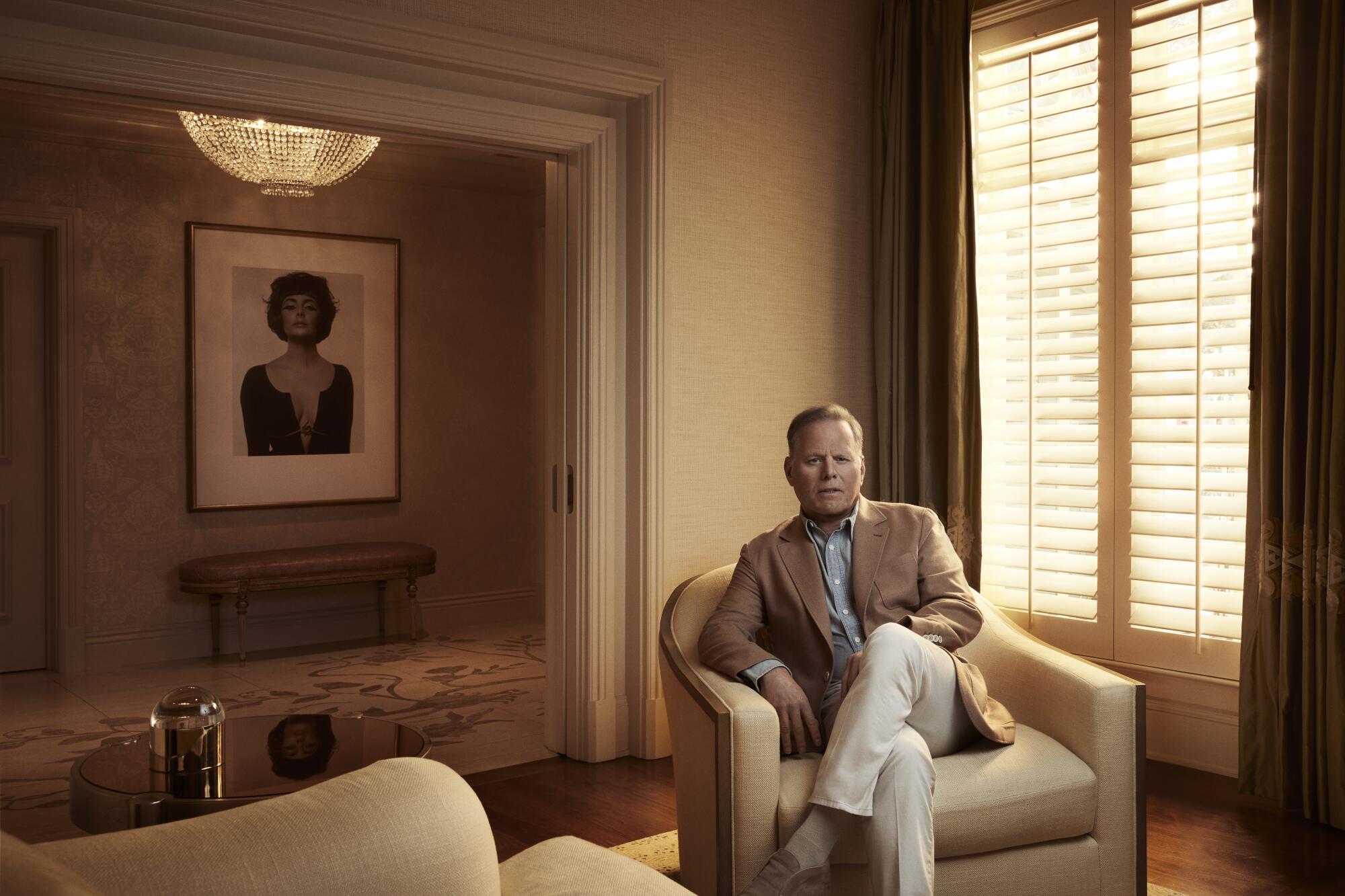
- Share via
Months before the COVID-19 pandemic hit, David Zaslav spent $16 million to buy the Beverly Hills estate of the late film producer Robert Evans and began refurbishing the tattered shrine to 1970s Hollywood.
Two years later, Zaslav embarked on a grander renovation. His cable programming company Discovery took control of the legendary Warner Bros. film and TV studio in Burbank, plus HBO, CNN, TBS and TNT. Zaslav had run Discovery for 16 years, but now he was finally in the major leagues. He proudly plunged into the self-styled role of Warner Bros. Discovery’s Superman, brimming with ambition to bring back the luster to the century-old studio — and to Hollywood itself.
Discover the changemakers who are shaping every cultural corner of Los Angeles. L.A. Influential brings you the moguls, politicians, artists and others telling the story of a city constantly in flux.
But he’s been dodging kryptonite ever since.
Just as the April 2022 merger closed, the streaming bubble burst. The $43-billion buyout of previous owner AT&T created a mountain of debt, prompting Zaslav and his team to lay off thousands of employees and scour for cuts. More than $1 billion in programming was canceled, including the nearly completed $90-million “Batgirl” movie, axed for a tax deduction.
Then last year’s historic labor strikes brought film and TV production to a virtual halt, further disrupting Warner Bros. Discovery’s programming pipeline.
Despite releasing last year’s biggest movie blockbuster, “Barbie,” which generated more than $1 billion at the box office, Warner Bros. Discovery’s financial struggles have alarmed Wall Street. Its stock tanked after posting disappointing earnings, and now, the company is worth about a third of its value when Zaslav took over.
One of America’s highest-paid executives, the 64-year-old Brooklyn, N.Y., native has nonethless struggled to reverse the slide. His success or failure could dictate the future of the Warner Bros. studio and storied television brands. Analysts anticipate smaller media companies will get swallowed by larger rivals in a consolidation wave, thrusting Warner Bros. Discovery into a “Game of Thrones”-esque battle for survival.
‘What has worked for me throughout my career is not shying away from doing what’s hard.’
— David Zaslav
“This is a moment of real disruption. It’s a consequential moment for our businesses,” Zaslav said in a December interview in his Art Deco office on the Burbank lot where Warner Bros. founder Jack Warner once called the shots. “It’s exciting, and scary, but we need to chart a new course in the industry.”
So he’s shaken things up. He mandated that CNN steer to the political center, a strategy that will be tested as the network tackles another divisive election year. His first stab backfired after former President Trump railroaded a town hall to spread lies, infuriating CNN’s newsroom, and contributing to Zaslav’s firing of his first CNN chief, Chris Licht. Former New York Times executive Mark Thompson has been tasked with the turnaround.
And Zaslav will need to make streaming service Max more popular with consumers and win over skeptics who denounced its commingling of HBO’s prestige quality with shows such as “Flea Market Flip.” Seemingly acknowledging his company’s offerings might not be strong enough to stand on their own, Zaslav has agreed to offer Max as part of a Disney bundle for Hulu and Disney+. And his Turner networks are scheduled to be part of an upcoming streaming sports venture, Venu.
“When you make decisions, some aren’t going to work,” Zaslav said. “But what has worked for me throughout my career is not shying away from doing what’s hard. Sometimes hard means you have the best chance to win.”




